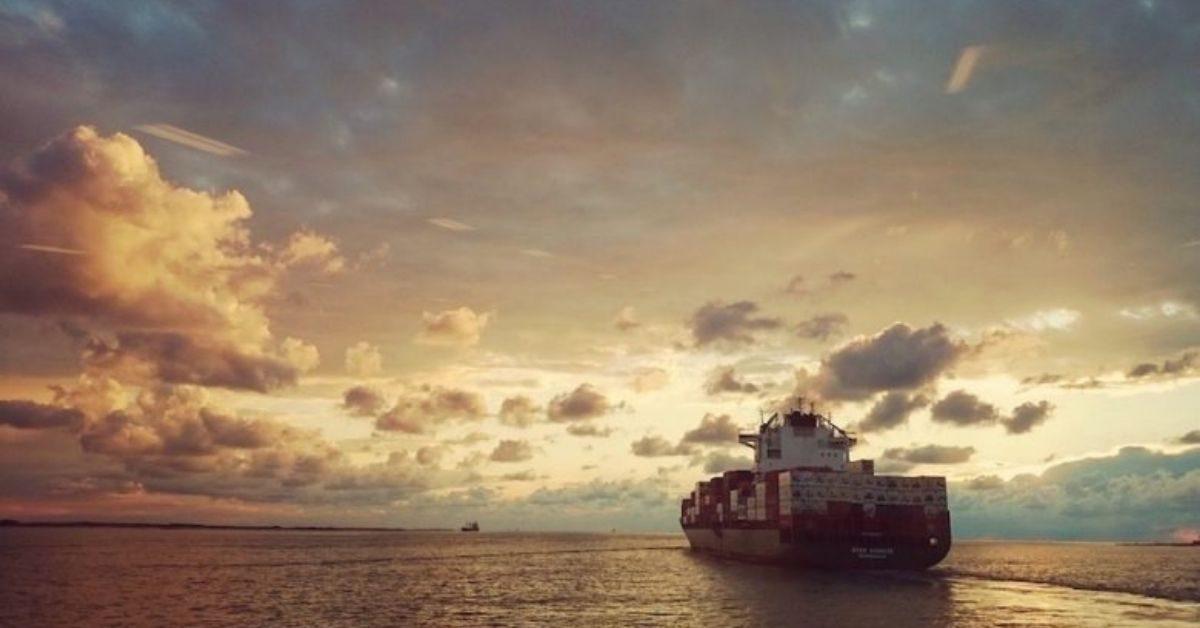Negotiators worked overtime to come up with the final text for COP26 over the weekend. For shipping, there’s little time – one week from today – to digest the key takeaways from the United Nations’ major climate summit before the Marine Environment Protection Committee (MEPC) meets at UN agency, the International Maritime Organization (IMO) in London.
During the final COP26 negotiations, China and India insisted that language on fossil fuels be weakened in the final summit decision text.
UN secretary general Antonio Guterres acknowledged the shortcomings of the agreement, in a statement following the deal reached on Saturday evening at the Glasgow conference.
Fear is a much stronger motivating factor than greed
“The #COP26 outcome is a compromise, reflecting the interests, contradictions and state of political will in the world today,” he tweeted.
Nevertheless, for shipping the fortnight of climate discussions in Scotland’s largest city were peppered with many important announcements as covered by Splash on Friday. The Clydebank Declaration for clean shipping corridors was the initiative that attracted the most coverage.
Signatories to the Clydebank Declaration have agreed to work together to support the establishment of green shipping corridors, defined as zero-emission maritime routes, between two or more port pairs.
Of potential equal significance to the green corridor news was the Dhaka-Glasgow Declaration outlining the demands of more than 50 climate vulnerable nations from Africa, Asia, the Caribbean, Latin America, the Middle East, and the Pacific, an enlarged grouping that has the potential to fundamentally change the arithmetic at the IMO when it comes to key votes in green targets.
Johannah Christensen, CEO of the Global Maritime Forum, a not-for-profit organisation that has helped coordinate many green shipping initiatives in recent years, said this year’s COP had been unique for shipping.
First, an unprecedented consensus on what is needed to decarbonise shipping emerged in the run-up to COP26 as well as a long list of private sector commitments. Then, over the past two weeks, governments responded with their own announcements, and at the highest levels.
“It was notable that maritime decarbonisation was not just on the agenda of transport ministers, but on that of heads of state, trade, environment and foreign affairs,” Christensen said.
Setting bold targets is a lot easier than delivering on them, Christensen pointed out, calling for “full value chain collaboration” and the active involvement of governments and regulators – including the IMO – to make zero emission shipping commercially viable at scale and ensure that the transition to zero emission shipping is just and equitable.
“The key question therefore is: will the countries that have been shipping climate heroes at COP26 also be shipping climate heroes at IMO MEPC77 in just a week’s time?” Christensen mused.
William Fairclough, managing director at Hong Kong shipping line Wah Kwong Maritime Transport Holdings, participated at the International Chamber of Shipping’s green event held midway through COP26, and decided to stay on as he was keen to get a feel for the mood outside of shipping.
“We all know too much about what each other think in our myopic shipping world but with the world about to wean itself off hydrocarbons, which account for nearly half of our cargoes in the shipping world, I felt what was happening outside the shipping events is probably more transformatory for our industry than what’s happening within it,” Fairclough said in conversation with Splash.
The shipowner argued that there is now buy in from the corporate world, a sense of collective urgency and willingness to collaborate and try things outside their comfort zone.
“Greenwashing will not be tolerated by lenders, consumers, customers, etc. From what I hear this is a major step forward from Paris where the corporate world were slight deers in the headlights. Companies will leave this COP realising not just that their competitors are serious about it, so they don’t have to worry about putting their head too far above the parapet, but fearful that their competitors are going to do it faster than them and leave them behind,” Fairclough said, stressing: “Fear is a much stronger motivating factor than greed.”
Lasse Kristoffersen, CEO of Norwegian owner Torvald Klaveness, agreed that there is now a greater, uniform pressure for change, even if politicians were unable to reflect this in the final text coming out of COP26.
“The external push will continue to evolve rapidly and the pressure we see today is just the very first beginning. Hence, to make decisions today that are valid in five or ten years, we need to think transformational,” Kristoffersen said. “Unfortunately COP and its side event will not deliver that, but it is emerging as significant business opportunities and some companies will take that opportunity.”
Splash will be bringing readers regular updates from MEPC77 next week.
Source : Splash247






